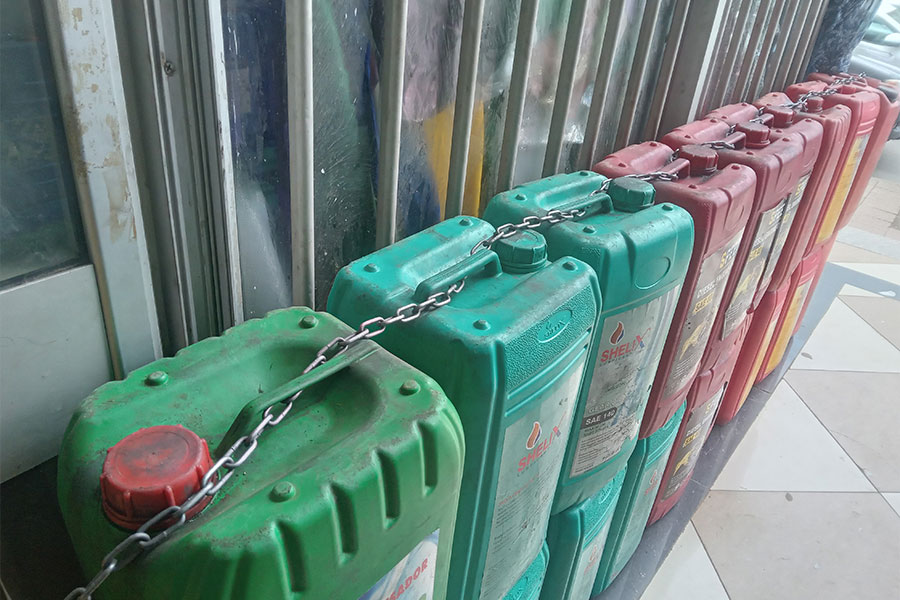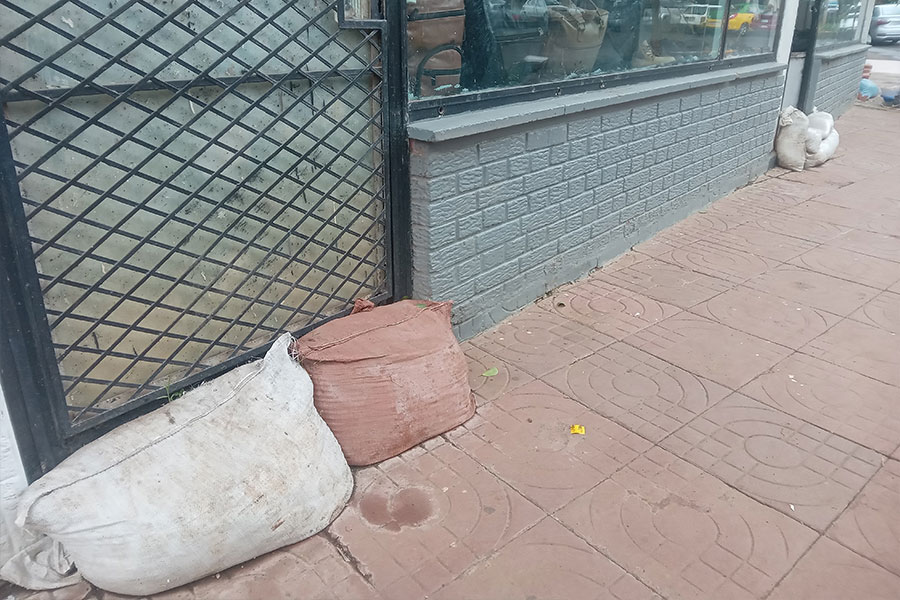01
In Addis Abeba, Tourist Numbers Rise But Tables Stay Empty
Traditional restaurants in Addis Abeba, known for serving authentic domestic dishes and offering vibrant cultural performances, face severe constraints, despite an uptick in tourist arrivals officially touted. The struggle for survival among these eateries signals a wider concern within the tourism industry, uncovering gaps between reported visitor statistics and actual business performance.
02
Addis Abeba Demands Buildings Open Parking Spaces to Public
Buildings in Addis Abeba are mandated to open their parking spaces to the public, as part of a broader effort to address the city’s persistent traffic congestion and enhance parking infrastructure. Addis Abeba Traffic Management Authority has introduced a series of measures with hopes of optimising the use of parking spaces and regulating traffic flow.
03
In Greening Addis Abeba, a Legacy Planted, a Market Overlooked
As Addis Abeba ushers in this year’s rainy season, city officials have committed to planting 4.2 million seedlings across the capital, a far cry from last year’s 26 million. Although the scale has narrowed, ambition remains unchanged. In what city officials describe as a bold shift, all seedlings will now be sourced directly from municipal nurseries, cutting out the hundreds of small-scale vendors that have been supplying institutions under the federal Green Legacy Initiative.
04
As School Fees Soar in Addis, Families Choose Between Education, Survival
Late June in Addis Abeba brings its first curtain of rain, a grey veil that slows the minibuses and muffles the usual din of the capital. It is the season when schools close, children tumble into the streets, and families cheer another grade completed.
For Mihiret Yohannes, a mother of three renting a two-room house in the Saris neighbourhood, the rain feels less like a lull and more like a warning bell. Her eldest two, now 17 and 18, make the daily trek to Maria Rubatto School on Bekelech Street (near what is popularly known as Chechenia) in Bole District. The youngest is still in nappies and needs formula, costs which already strains the household budget.
05
Addis Abeba Officials Backtrack After Uproar Jolts Property Owners
A controversial decision to clear a large tract of land in Addis Abeba’s Wereda 1, around Flamingo and the Olympia roundabout, potentially affecting 31 properties, has been abruptly reversed, bringing relief to the property owners but leaving developers uncertain in its wake.
06
Addis Abeba University’s Autonomy Shuts the Door on Brightest Minds
For as long as he could remember, 18-year-old Menase Samuel had dreamed of studying software engineering at Addis Abeba University (AAU). Like many of his peers, he saw AAU as the pinnacle of higher education, a gateway to opportunities that could lift his family out of poverty. When the University announced it was accepting applications for self-sponsored positions, Menase did not hesitate.
07
Addis Abeba Businesses Face Mandatory Health Insurance Fee Stirring Dissent
The Addis Abeba City Administration has mandated all businesses to contribute to the Community-Based Health Insurance (CBHI) scheme as a precondition for accessing essential government services, including trade license renewals and tax clearance certificates.
The circular, signed by Biniyam Mikru, head of the Addis Abeba Revenue Bureau, took effect on July 17, 2025, with immediate enforcement, sparking a flurry of confusion, resistance, and criticism over a lack of stakeholder engagement.
08
Addis Abeba’s EV Rollout Short-Circuits Due to Power Delays
Addis Abeba is racing to build a public charging network for electric cars estimated to reach 100,000, but the rollout has already hit a wall. The plugs are installed,but the power is not.
The Traffic Management Authority is wiring every “smart” parking lot for chargers, starting with Women’s Square, Casanchis and Bole-Japan neighbourhoods, disclosed Binyam Getachew, director of Parking Traffic Infrastructure Management.
09
Addis Abeba to Launch Sweeping Crackdown on Construction Safety Failures
In a city rising skyward at breakneck speed, a reckoning has arrived. Authorities in Addis Abeba have declared a sweeping crackdown on unsafe construction practices, putting thousands of developers, contractors, and consultants on notice.
10
Investment Holdings Revamps CBE’s Boardroom
Brook Taye (PhD), CEO of Ethiopian Investment Holdings (EIH), Ethiopia’s sovereign wealth fund, has appointed three individuals to the board of the state-owned Commercial Bank of Ethiopia (CBE), following his board’s approval.











 Loading your updates...
Loading your updates...